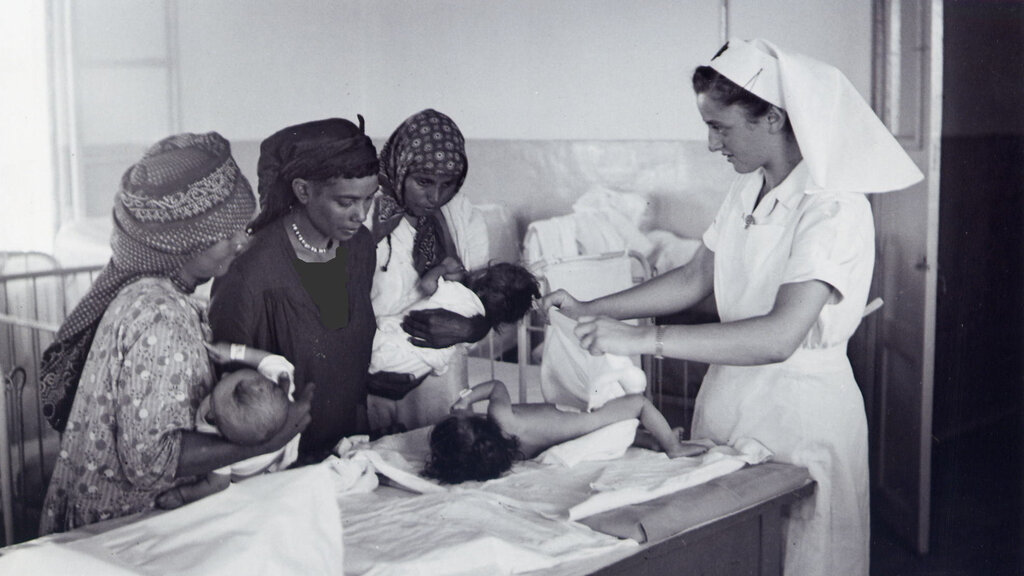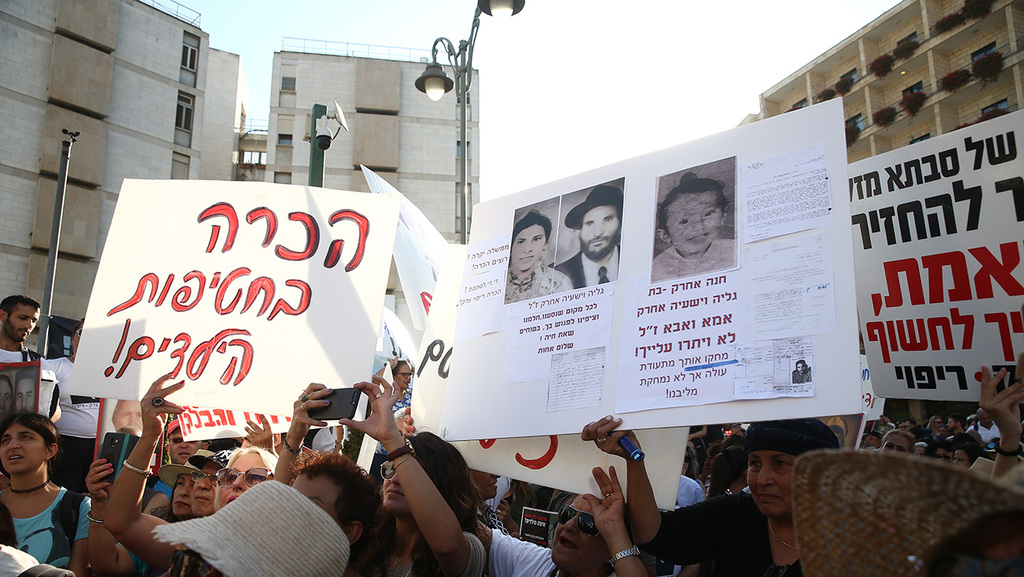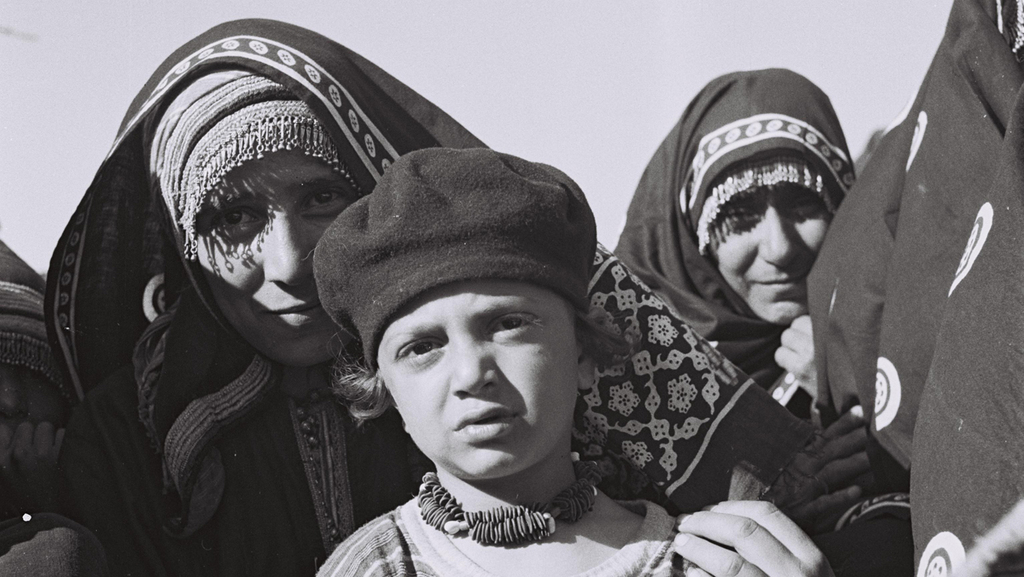The government on Monday approved reparations for predominantly Yemenite families whose children vanished without trace from Israeli immigrant facilities in the early years of the state.
As many as 1,050 babies, primarily from immigrant families from Yemen, went missing, often after they were taken to health clinics or hospitals for alleged medical care.
3 View gallery


Immigrant Yemenite mothers and their children in immigration facility clinic in the 1950s
(Photo: GPO)
Families were told their babies had died but no graves were ever presented and no proof of their death was provided.
Some families insist that their babies were abducted and testimonies that emerged over the years indicated that at least some of the children were put up for adoption in Israel or with Jewish families in the United States.
Three committees of inquiry have looked into the matter over the years but none delivered conclusive findings. All three were heavily criticized for accepting claims that the children had died without further questioning. It was later discovered that many documents were either destroyed or had never made their way to court.
A 2001 report by the Kedmi Commission that was sanctioned in 1995 by then-prime minister Yitzhak Rabin did make some progress.
It found that “69 children out of 800 are surely not deceased, and their fate is unknown. These babies were given by their parents to hospitals or children’s facilities and never returned. Some were taken by officials to receive medical treatment or be hospitalized and never returned.”
The report closed with the words: “This committee is sorry for the families’ loss.”
This statement was perceived by many as a confession by the state after officials have denied any wrongdoings for decades.
The government issued an official statement on Monday expressing regret for the events that "transpired during the early years of the state and recognizing the suffering of families whose children were part of this painful saga."
According to the government's decision, each family is to receive between NIS 150,000 and NIS 200,000 ($46,000 to $62,000).
Prime Minister Benjamin Netanyahu instructed Education Minister Yoav Galant to include the story of the abducted children into school curricula.
"This is one of the most painful chapters in the history of the country," Netanyahu said adding that all Israeli students must know the story.
"Financial compensation cannot ease the unbearable pain these families have been suffering but we must help them find some solace," he said.
Finance Minister Israel Katz said that by voting to pay reparations, the Israeli government acknowledges that children were taken from their families, some of which are still fighting through the courts to find answers.
"We will help them find justice and will begin to heal this historic wound," Katz said.
The families of the missing children will be able to apply for reparations between June and November 2021.
Minister Tzachi Hanegbi, who was tasked with locating and unveiling documents pertaining to the events of the time, said after the decision that this was a step towards solving a problem that was mostly ignored for decades.
"Many families had mistrusted the governments over the years and had not joined the various committees that looked into the matter. We will now open the records of the committees to the public," Hanegbi said.
Some families whose children disappeared were critical of the government's decision.
3 View gallery


Protesters in Jerusalem demand answers on the fate of missing Yemenite children in a demonstration in 2019
(Photo: Ohad Zwigenberg)
"I was insulted by the decision to give us money, they just want to bury the whole thing," said Shoshana Yosef, whose brother Rafael disappeared after he was hospitalized.
"We want answers. We want to know what happened to him. Where he has been? The money is not worth my mother's sorrow all these long years," she said.
Another family member said she preferred the truth over money.
"This is not an apology," Sara Damti said.
"It is a disgrace that governments still fail to understand the rage and pain that these families have felt for generations."
First published: 23:05, 02.22.21


